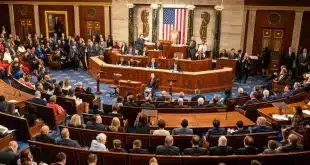With the U.S. EMV transition just getting into high gear, the number of EMV chip cards worldwide increased last year by 1.4 billion, or 41%, the EMVCo standards body reported Thursday. Meanwhile, Discover Financial Services joined the other three U.S. general-purpose payment card networks in taking steps to speed up chip card transactions and reduce merchant hassles.
EMVCo also reported that 35.8% of all card-present transactions in 2015 used EMV technology, up from 32% in 2014.
The U.S. finished 2015 with 394 million EMV cards in issue, up nearly four times from 101 million in 2014, according to EMVCo, which is owned by Visa Inc., MasterCard Inc., American Express Co., and Discover in addition to China’s UnionPay and Japan’s JCB.
Some 26.4% of U.S. general-purpose credit and debit cards had a chip at year-end.
The card networks’ point-of-sale liability shifts on Oct. 1, 2015, were the big catalyst for the mass chip card issuance. The liability shifts assign financial responsibility for counterfeit fraud to whichever party in a card transaction—merchant or issuer—that didn’t support EMV.
Despite the greater card numbers, only 1.98% of U.S. card transactions in 2015 involved a chip card read by an EMV terminal. That percentage should be much higher by the end of 2016 as merchants bring hundreds of thousands more EMV terminals online. According to recent Visa and MasterCard figures, at least 1.2 million U.S. locations now take chip cards.
EMV’s penetration is greatest in what EMVCo calls Europe Zone 1, which includes most European nations and Turkey, where 97.3% of card transactions were chip-on-chip in 2015. Europe Zone 1 is also the region with the highest EMV adoption rate—the percentage of payment cards with an EMV chip: 84.3%, or 881 million cards.
The U.S. is a separate EMVCo region. Below are 2015 chip card transaction rates, card numbers, and adoption rates for EMVCo’s four other regions:
• Canada, Latin America, and the Caribbean: 87.9% of transactions, 680 million cards, 71.7% adoption.
• Africa and the Middle East: 87.1% of transactions, 160 million cards, 61.2% adoption.
• Europe Zone 2 (mostly Eastern European nations and Russia): 71.8% of transactions, 200 million cards, 52.3% adoption.
• Asia Pacific: 40.3% of transactions, 2.46 billion cards, 32.7% adoption.
“The global adoption of the EMV specifications is imperative to the development of a more secure and interoperable payments industry,” Mike Matan, chairperson of EMVCo’s Executive Committee and vice president of global network business at AmEx, said in a statement. “EMVCo welcomes engagement with interested parties from across the payments ecosystem and supports a number of initiatives to enable the payments community to be actively involved in developing, enhancing, and evolving future specifications.”
U.S. Sen. Richard Durbin, D-Ill., however believes merchants and consumers didn’t have enough say in the U.S. conversion and recently sent a letter to EMVCo asking about its governance process.
Meanwhile, Discover on Thursday unveiled its “Discover Quick Chip” program to address concerns that contact chip card transactions are slow compared with magnetic-strip card purchases. The program, effective for Discover cards and the Discover-owned Diner’s Club and Pulse networks, reduces the time an EMV card needs to be in the terminal.
Discover also says the program reduces EMV certification requirements and is compatible with other networks’ technical requirements. Merchants have complained loudly that delays in getting EMV systems certified are holding up chip card acceptance, and they’re also upset about rising chargebacks under the liability shifts. Both Visa and MasterCard have implemented systems to streamline certification processes and ease chargebacks. AmEx this week also announced a program to reduce merchants’ EMV chargeback exposure.




